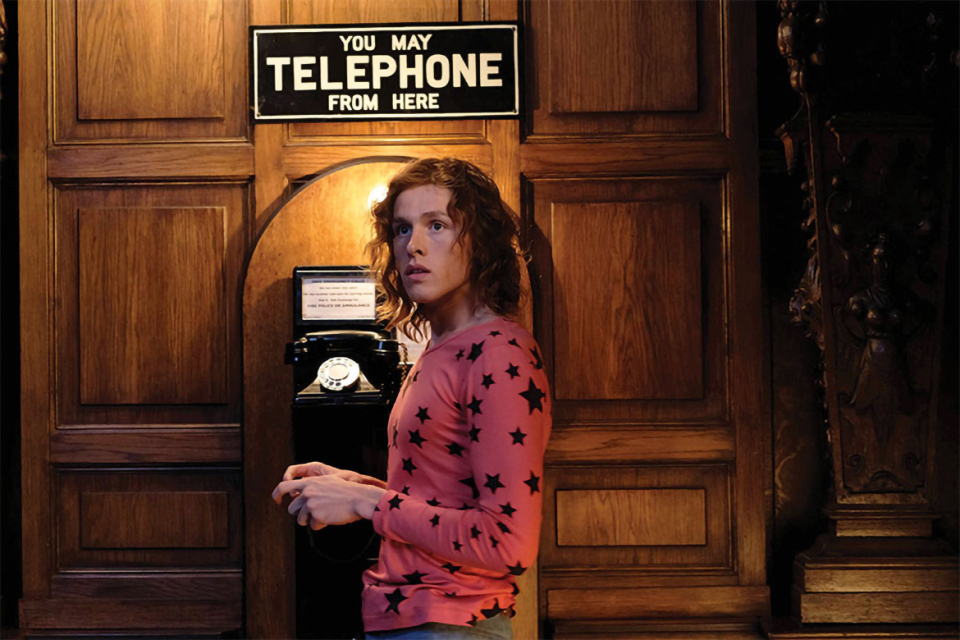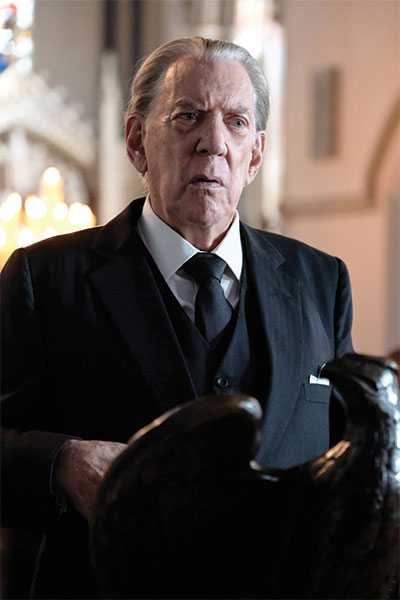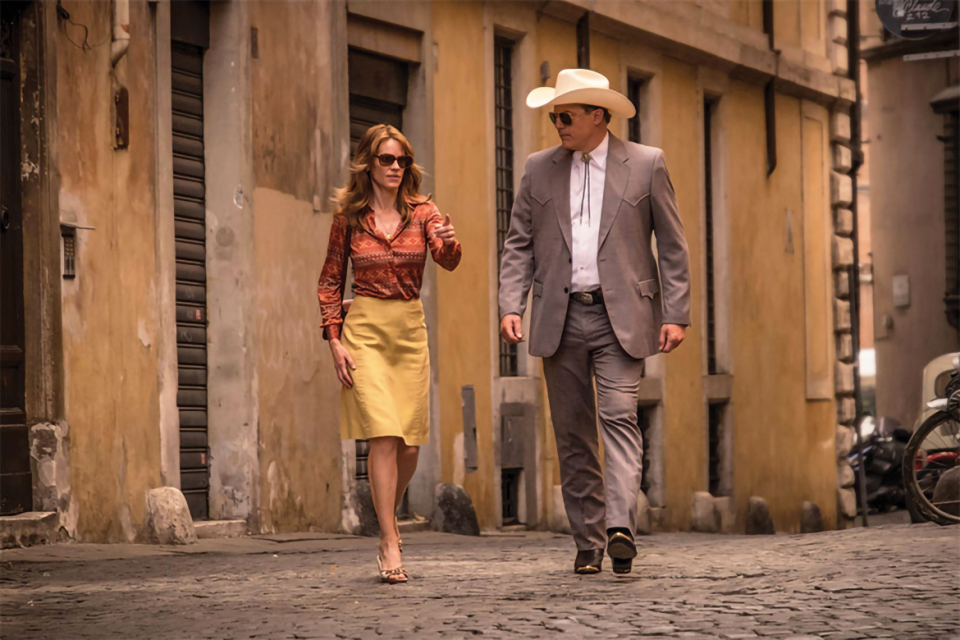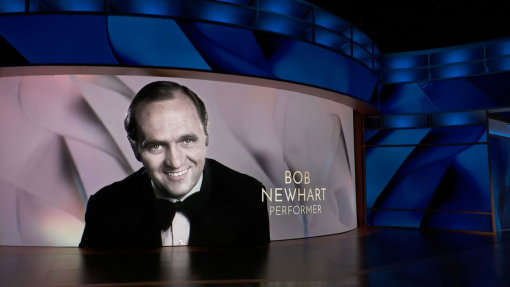When screenwriter Simon Beaufoy began his research for FX's Trust, he was delighted to learn that an old axiom held up when it came to the 1973 kidnapping of J. Paul Getty III: truth is stranger than fiction.
At the time, the kidnap victim's grandfather, oil tycoon J. Paul Getty Sr., was living with a harem of female companions and a pet lion in Surrey, England, just outside London. His guests were encouraged to use a pay phone in the mansion when they needed to make calls. And despite being worth billions, the elder Getty balked at paying the paltry $17 million ransom the Italian kidnappers first demanded for his 16-year-old grandson.
"As a writer, you don't dare make that kind of shit up because it's just not believable," Beaufoy says. "The fact that it existed, then, is extraordinary. It's like Downton Abbey on acid. I really wanted to get a flavor of that crazy, twisted, warped aristocracy in Surrey."
The Getty story is so epic and bizarre, it inspired two projects debuting just months apart. Sony Pictures released the Ridley Scott film All the Money in the World late last year, in time for Oscar contention. Come March 25, FX expands the story when it premieres the 10-episode Trust.
"There's so much to this story and this family," says Eric Schrier, president of original programming for FX Networks and FX Productions. "Telling the first installment over 10 parts enables you to get deep into the characters."
Neither Beaufoy nor director Danny Boyle were surprised to learn that the Getty family was the subject of multiple projects. "People are fascinated by wealth," Beaufoy observes. "You think about why…. It's not because they're clever or talented or doing anything well. No, it's just because they're rich."
Trust stars Donald Sutherland as Getty Sr. and Harris Dickinson as his kidnapped grandson. Brendan Fraser plays the elder Getty's fixer, James Fletcher Chace, and Hilary Swank stars as the young Getty's mother, Gail. She is divorced from her son's screw-up of a father, J. Paul Jr. (Michael Esper), who, like his brothers, has little love for their disapproving, dictatorial dad.
"If you put them all together — the Getty family — and sat them down at a Thanksgiving table, it'd be the worst," Sutherland says. "Even the turkey would leave."
The trio of Beaufoy, Boyle and Christian Colson — who executive produce the series and collaborated on the features Slumdog Millionaire and 127 Hours — was developing a different project with FX when they proposed yet another idea: three seasons of television following the Getty family over several decades, beginning with the kidnapping.
"The kidnapping was the collateral damage of three generations of dysfunctional wealth," says Beaufoy, the series creator. "That, to me, was a fascinating place to dive into as a writer."
After a year-long development process, FX ordered Trust to series in 2016. And the development of Scott's film "didn't change our process one bit," Schrier maintains.
Beaufoy was head writer for the first season, and Boyle directed the first three episodes. Filming took place over six months on location in England, Italy and Morocco, with an expansive international cast.
"This is the largest foreign production we've ever done," Schrier says. "It's one of the largest productions we've ever done. I think the quality speaks for itself."
The first season of Trust focuses on the same chapter of family history as Scott's film. A major difference between the two versions is that in the film, Little Paul — as the young Getty was called at the time — is depicted as the innocent victim of a kidnapping. In Trust, however, Paul concocts his own abduction to pay debts he's racked up in Rome with his girlfriend Martine, her twin sister Jutta and their friends.
His scheme goes terribly wrong when his grandfather refuses to pay any ransom and his father shows no interest or ability in helping. Gail tries to convince the local police he's been kidnapped, but they think it's a hoax.
And it is — until it isn't. Paul becomes a real captive in the hands of the Calabrian mafia in southern Italy. And this group is serious about wringing money from Paul's family, holding Paul captive for five months and cutting off his ear.
"Doing our research, we found there were so many versions of this story — so many opinions that you're besieged with," Boyle says. "It's like any great story: the storytellers bring their own interpretation to it. Then you dramatize what you believe is truthful for the characters."
Beaufoy dramatized the story — as he understood it — after reading mountains of research, some of which the Trust team commissioned. The "self-kidnapping" angle has long been contentious, he says, but Charles Fox's 2013 book, Uncommon Youth: The Gilded Life and Tragic Times of J. Paul Getty III, convinced him that it's true.
Fox, a journalist who died in 2012, covered the Getty kidnapping from the start and eventually became friends with Paul, who later asked him to write his biography. Fox had extensive access to Paul, his relatives, former lovers, attorneys and housekeepers.
"He's the only one who had direct access to the people involved in the kidnapping," Beaufoy says of the author. "He implies in that book it's a self-kidnapping. And I've seen a bit of film where Martine admits that she was involved in the kidnapping. So I took that and expanded it. This is a hoax that went terribly wrong."
Dickinson, a breakout in last year's indie Beach Rats, considers the Trust version of events a meditation on the Getty turmoil of 1973.
The 21-year-old British actor knew nothing about the case before he secured his first audition for the role. He then "went down a rabbit hole of intrigue," he says, learning that Paul was living on his own in Rome at 15, selling his paintings and jewelry because he had none of the Getty billions.
"I can't imagine gallivanting around Rome at 15," he says. "I wanted to show that he was just a kid crying out for some help."
Through Dickinson, viewers will see Paul experience the joy of anonymity as he dances barefoot through the streets, betrayal when he realizes his friends were using his name to live beyond their means and his terror when the hoax he's orchestrated turns into a harrowing ordeal. "He's a real talent," Boyle says of Dickinson. "He walked into the audition and we just knew — it was finding our center, really."
As Boyle was searching for the right actors to play Paul and his grandfather, he kept coming back to something that psychologist and author Timothy Leary once said about Paul. Leary had met Paul some years after his kidnapping. By then the former captive was struggling to recuperate from a debilitating stroke he'd suffered after ingesting a cocktail of drugs and alcohol.
"Leary said Paul had the willpower of Niagara [Falls]. I remember reading that and thinking, 'Fuck, so did his grandfather,'" Boyle says. "I found that in Harris and in Donald, obviously — they have that ability to insist on their willpower, on making the world the way they want it to be."
Sutherland believes the elder Getty recognized a kindred spirit in his grandson that he didn't see in his own sons, who'd disappointed him time and again with their drug use and drinking. But if he saw potential in Paul, why did he haggle over the price of his freedom? Sutherland says understanding Getty Sr.'s philosophy of life was key to his discovery of the character.
The 82-year-old actor doesn't see the tycoon as a heartless miser, but as a man ruled by logic. "Why do people say he was paranoid? Why do they say rigid? He's not rigid — he's formal. And he's precise. He's resolute, rigorous. He was brilliant, and people who didn't fall within that paradigm frustrated him."
Beaufoy isn't as forgiving. "He got a good bargain on the kidnapping," he quips of Getty, while adding that Sutherland gave the magnate "huge humanity."
"If Donald didn't have his wit, [Getty] would be a monstrous character," he notes.
Sutherland was struck by the project even before accepting the role. After the producers reached out, he wrote his impressions of the character and what fascinated him about Getty, including his name.
"I'm surprised that someone originally from Oklahoma would name their son John, but it would be J-e-a-n ," he says. "It's always J. Paul Getty, but it's Jean ."
He kept reading on the subject but also dived into the "absolutely exquisite" script. Beaufoy "writes from the inside of each character and captures their individualities," Sutherland says. "It's perfect."
For his part, Boyle is impressed by Sutherland's work ethic: "I've never worked with an actor of any age who prepares as meticulously as Donald."
By the time filming began, Sutherland had a deep understanding of Getty's "emotions, thoughts and anticipations."
"I think Jean Paul Getty inhabited me," he says. "He took over my arms, took over the set of my chin, added a stillness that I don't have."
Trust marks Beaufoy's first foray into television and Boyle's return to the medium after several years of feature filmmaking. The frequent collaborators are effusive about their experience in the longer format.
"The great privilege of my writing life has been to do this," Beaufoy says. "It's been amazing."
Boyle couldn't believe it when FX insisted he resist his movie-director inclination to tighten scenes. Beaufoy, too, had to "step off the freeway of narrative, which you're on with a movie, and go down the back alleys."
"People at FX say, 'Be bold,'" he recounts. "Movies are risk averse. But in TV they go, 'Sure, take risks. Actually, take a bigger risk.' They're pushing the limits of my storytelling, which is amazing."
The production also pushed Boyle to do things he hadn't done before, like casting some 70 actors for the season. "The proudest thing for me was casting these actors," he says, "not just the American and English actors, but the Italian actors as well. One of the highlights of my career has been gathering this huge cast and bringing them together."
Swank was equally excited about working in TV after spending most of her career in film. When Boyle called her about playing Gail, he explained that her character wasn't in the pilot script he was sending her way. Despite that, the two-time Oscar winner immediately said yes. Gail is introduced in the second episode and appears briefly in the third, but her crusade to save her son picks up in the fourth.
That was just fine with Swank, who eagerly anticipated each script. "I loved seeing it unfolding," she says. For Swank, Gail comes into her own as she struggles first to get anyone to believe Paul was kidnapped, then as she presses the elder Getty to pay the ransom.
"She has a lot of issues and she's not perfect," the actress says. "And even though she is the moral compass, she fights her own demons. She's made some bad choices in her life."
The Getty family was plagued by bad choices. And the clan's many tragedies reveal the truth in another axiom: money can't buy happiness. "Somebody said that the trust — their wealth — was the toxic placenta of the family," Boyle relates. "And that is a story as old as money itself, what money does to us."
This article originally appeared in emmy magazine, Issue No. 2, 2018






